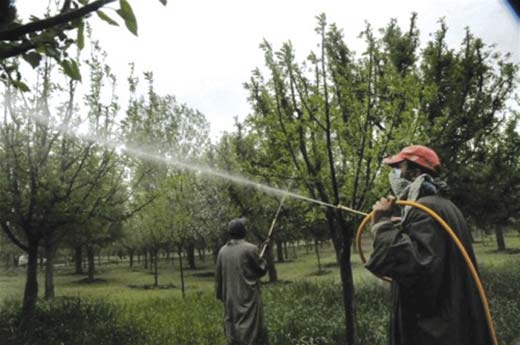SRINAGAR: On Tuesday, Chief Justice D.Y. Chandrachud, leading the constitutional bench of the Supreme Court, declared that starting from August 2, the court will hold daily hearings for the petitions challenging the government’s decision to revoke the special status of Jammu and Kashmir.
The court has set a deadline of July 27 for all parties to submit their written submissions.
During the hearing, it was revealed that two petitioners, Shah Faesal, a bureaucrat, and Shehla Rashid, a former student leader, have withdrawn their pleas.
Former Chief Minister and PDP Chief Mehbooba Mufti expressed concerns about the Supreme Court’s decision to hear the case on a day-to-day basis after “remaining silent for four years.”
Hon’ble SCs decision to not rely on GOIs affidavit vindicates that it doesnt have a logical explanation to justify illegal abrogation of Article 370. Having said that there are legitimate apprehensions about why SC has taken up the Article 370 with such alacrity after their visit… https://t.co/RIEYgEvcoh
— Mehbooba Mufti (@MehboobaMufti) July 11, 2023
Taking to Twitter, the PDP president wrote, “There are legitimate apprehensions about why the SC has taken up Article 370 with such promptness after their visit to Kashmir. After remaining silent for four years, the decision to hear the case on a daily basis does raise suspicions.”
Reacting to the apex court’s observation on the filing of an affidavit by the Centre, Mufti stated that the SC’s decision to not rely on the Government of India’s affidavit proves that there is no logical explanation to justify the illegal abrogation of Article 370. She added, “Hope the Constitution of this country, by which the judiciary swears, is not sacrificed at the altar of power to satisfy the collective conscience of people who know little about the matter.”
These are definitely political arguments the BJP/Union Govt can make to sell their decision to the voter but they are not legal arguments. The entire case in the SC is about the illegality & unconstitutionality of what was done on 5th Aug 2019, not whether the Govt has a strong… https://t.co/NvLsKPmtEq
— Omar Abdullah (@OmarAbdullah) July 10, 2023
Omar Abdullah, National Conference leader, responded to the Centre’s affidavit in defense of the abrogation of Article 370, saying, “These are definitely political arguments the BJP/Union Govt can make to sell their decision to the voter, but they are not legal arguments. The entire case in the SC is about the illegality & unconstitutionality of what was done on 5th Aug 2019, not whether the Govt has a strong enough political case.”
In its affidavit submitted to the Supreme Court defending the scrapping of Article 370, the Centre stated that the changes made in August 2019 to the constitutional provision, which granted special status to the former state of Jammu and Kashmir, have “brought unprecedented development, progress, security, and stability to the region, which was often missing during the old Article 370 regime.” The Centre asserted that this is a “testament to the fact that Parliamentary wisdom…” was “exercised prudently.”
Sajad Gani Lone, former minister and J&K People’s Conference President, remarked that the Article 370 case is one of the biggest challenges faced by the judiciary. He emphasized that the role of the apex court is not to pass judgment on whether the abrogation of Article 370 was beneficial or detrimental to J&K, but rather to determine the legality of the abrogation.
Perhaps one of the biggest challenges facing the institution of judiciary is how they deal with Article 370.
Per se the affidavit filed by the Central government focuses on issues post abrogation. What will eventually be discussed in the court is the legal pathway to abrogation…
— Sajad Lone (@sajadlone) July 10, 2023
Lone stated, “Per se, the affidavit filed by the Central government focuses on issues post-abrogation. What will eventually be discussed in the court is the legal pathway to abrogation, not the so-called perceived political or law and order benefits post-abrogation. Whether the abrogation of Article 370 is good or bad for J&K is not what the Apex court has to decide. They have to decide whether it was good or bad in law.”















